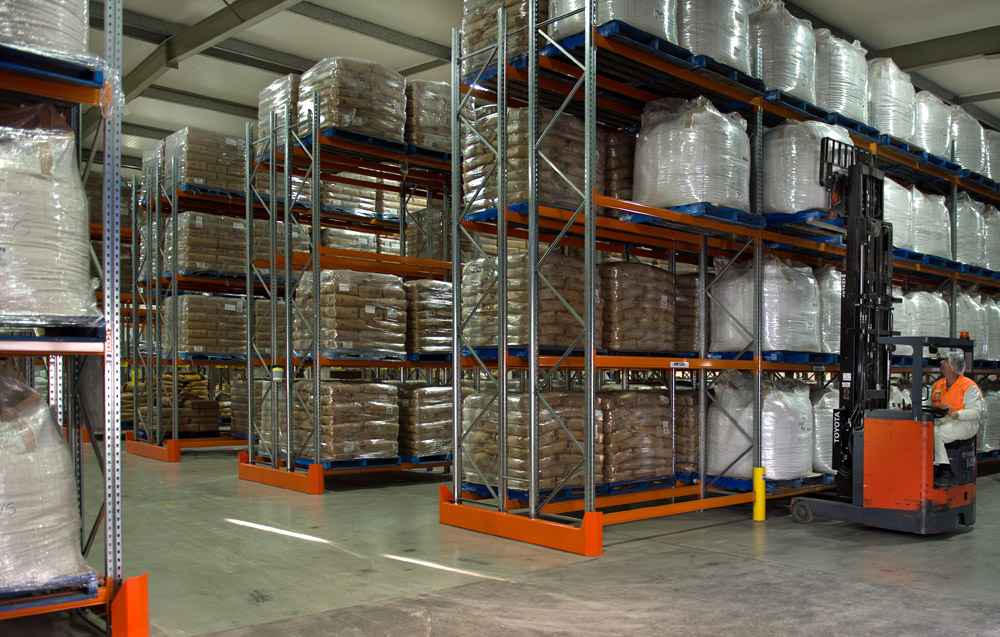Introduction
In today's fast-paced world, the need for hassle-free as well as ready-to-eat food is on the surge. This has resulted in an increased dependence on contract food manufacturing, where firms contract out the manufacturing of their foodstuff to customized producers. Nonetheless, one facet that is usually forgotten in the agreement manufacturing process is reliable food storage and distribution. In this post, we will check out the significance of effective food storage and also circulation in contract production as well as its effect on the overall high quality as well as success of food products.

The Role of Contract Food Manufacturing in Australia
Australia has a growing food industry, with a wide variety of regional as well as global brand names dealing with the diverse tastes and preferences of consumers. Contract food manufacturing plays an important role in this market by providing business with the necessary resources, knowledge, and framework to successfully create their food products. From small startups to large companies, lots of organizations turn to get producers to bring their cooking developments to life.
Contract Food Manufacturing in Brisbane: A Center for Innovation
Brisbane, the funding city of Queensland, is recognized for its dynamic food scene and also ingenious culinary offerings. It comes as no surprise that contract food manufacturing has prospered in this region. With advanced centers and a knowledgeable workforce, agreement food producers in Brisbane are well-equipped to manage the production requirements of various organizations. Whether it's establishing brand-new dishes or scaling up production, these suppliers play an essential function in bringing tasty food to customers' plates.
Ensuring Quality: The Trick to Successful Contract Food Manufacturing
When it comes to contract food manufacturing, making certain product top quality is extremely important. Manufacturers should comply with stringent requirements and also regulations established by authorities such as the Australian Food Specification Code and Excellent Production Practices (GMP). From active ingredient sourcing to manufacturing procedures, every action must be carefully prepared and also performed to preserve the finest criteria. This not only assures customer contentment however additionally assists construct trust as well as reliability for both the contract producer and the brand name they are creating for.
The Difficulties of Food Storage Space in Agreement Manufacturing
Efficient food storage space is an essential element of agreement production. The appropriate storage of basic materials, ingredients, and finished products is important to maintain their high quality and quality. Nevertheless, this can be challenging, especially when managing disposable things or huge amounts of supply. Elements such as temperature level control, product packaging integrity, as well as inventory monitoring play a crucial duty in making certain that food remain secure for consumption throughout the supply chain.
Overcoming Storage space Obstacles: Innovation as well as Advancement at Play
In recent years, advancements in technology have actually revolutionized the means food is stored as well as distributed in agreement production. From modern refrigeration systems to innovative inventory monitoring software, suppliers currently have accessibility to tools that can simplify their procedures and ensure ideal storage space conditions. These technical advancements not only enhance food security however additionally enhance efficiency and reduce wastefulness, inevitably benefiting both the maker and also the end consumer.
The Value of Effective Food Distribution
Efficient food distribution is an additional important component of successful contract production. When the foodstuff are made and stored appropriately, they need to reach their desired locations immediately. Timely delivery guarantees that the products continue to be fresh and also fulfill consumer assumptions. Furthermore, reliable distribution also minimizes costs associated with transport and logistics while taking full advantage of general productivity.
From Farm to Fork: The Journey of Food Products
The journey of food from farm to fork involves several stages, each calling for careful planning and also execution. Allow's take a closer consider each action associated with this procedure:
Sourcing Raw Materials: Contract food manufacturers work very closely with distributors to resource high-quality raw materials for their items. This consists of everything from fresh fruit and vegetables to spices, dressings, and also product packaging materials.

Food Production: Once the raw products are sourced, the contract producer complies with a set recipe and also production process to create the desired foodstuff. This includes various strategies such as food preparation, cooking, blending, and also packaging.
Quality Control: Throughout the production procedure, quality control procedures are applied to make sure that the completed item fulfills all safety and quality criteria. This includes regular inspections, screening, and adherence to governing requirements.
Food Packaging: After the item is produced, it is meticulously packaged to preserve its quality as well as stability during transportation as well as storage. Agreement makers usually offer tailored product packaging solutions tailored to fulfill the specific requirements of their clients.
Storage and Distribution: Once packaged, the foodstuff are saved in appropriate conditions to keep their high quality. From temperature-controlled storage facilities to efficient logistics networks, contract producers make sure that the products are distributed successfully as well as reach their locations on time.
FAQs
What is agreement food manufacturing? Contract food manufacturing refers to contracting out the production of foodstuff to customized makers. This permits businesses to concentrate on other aspects such as marketing as well as circulation while making certain high-grade products for their customers.
Why do business choose contract food manufacturing in Australia? Business pick contract food manufacturing in Australia for numerous reasons, including cost-effectiveness, accessibility to specialized expertise, conformity with regulative standards, and scalability of production.
What are the advantages of agreement food manufacturing? The advantages of contract food manufacturing consist of reduced capital expense, access to advanced innovations and also equipment, boosted production performance, faster time-to-market, and also flexibility in conference altering market demands.
What is the function of food packaging in agreement manufacturing? Food product packaging plays a critical role in contract manufacturing as it makes certain product security and prolongs life span. It also serves as a marketing device by supplying info about the product and also boosting its visual appeal.

How essential is food safety and security in agreement manufacturing? Food safety and security is of utmost value in contract production. Abiding by rigorous food safety and security criteria makes certain that the products are risk-free for consumption as well as helps construct consumer trust.
How does reliable food storage space and also circulation effect the success of agreement manufacturing? Effective food storage and circulation play a considerable function in the success of agreement manufacturing. They ensure that foodstuff stay fresh, get to customers on time, as well as keep their quality throughout the supply chain.
Conclusion
Efficient food storage space and circulation are vital manufacturer components of effective agreement manufacturing. From ensuring item quality to reducing wastage and conference customer assumptions, every element of the supply chain plays a considerable role in delivering risk-free and also high-grade food products to customers. By leveraging technological innovations, adhering to regulative requirements, as well as prioritizing customer satisfaction, contract suppliers can boost their competition out there while adding to the general growth of the Australian food industry.